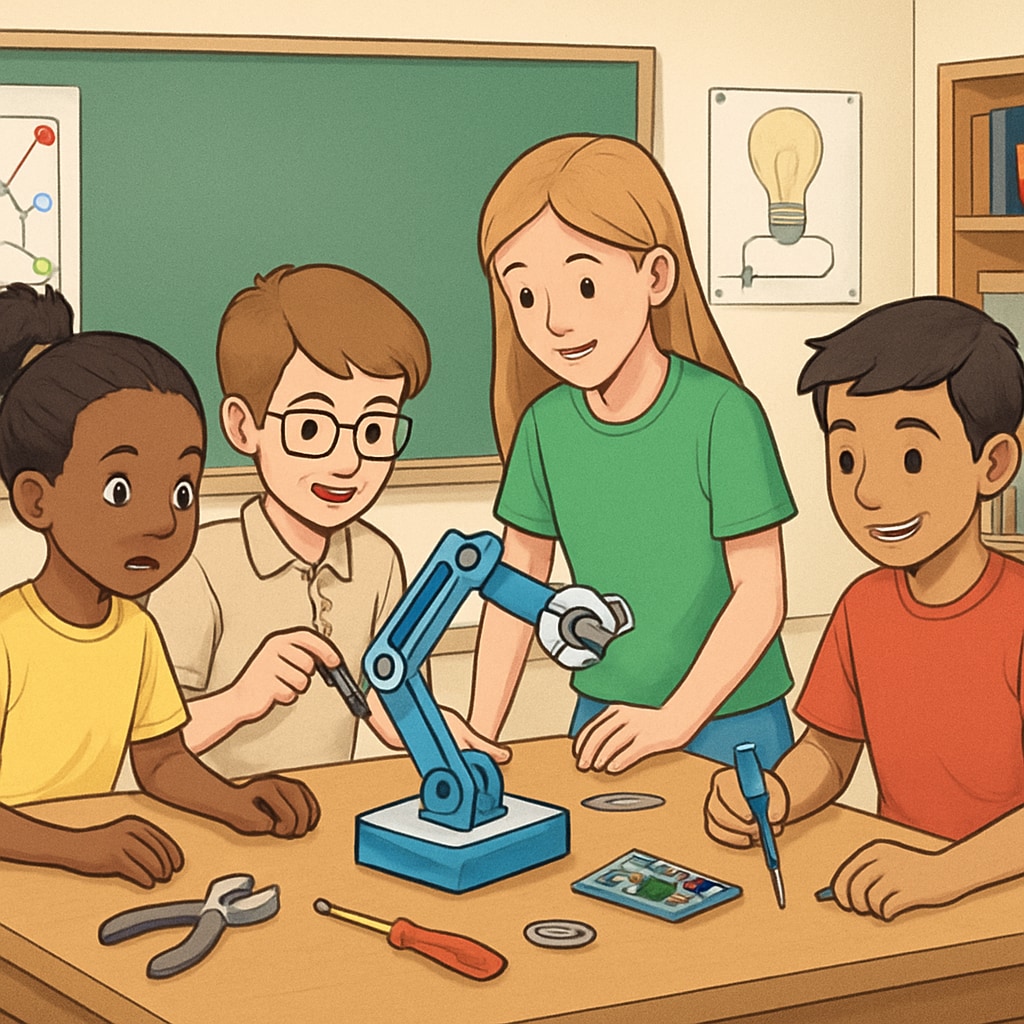The growing demand for skilled engineers has highlighted the importance of preparing students early for careers in mechanical engineering. Combining a traditional mechanical engineering degree with an online degree has become an increasingly popular way to enhance knowledge and diversify skill sets. This approach requires students to master time management, allocate resources wisely, and embrace multi-disciplinary learning paths. By starting early, particularly during the K12 education years, students can develop the foundational skills needed to successfully pursue such parallel learning models, positioning themselves for long-term career success.
Building a Foundation for Engineering Thinking in K12
Engineering thinking involves problem-solving, critical thinking, and innovation—skills that can be cultivated as early as the K12 years. Schools can introduce STEM (Science, Technology, Engineering, and Mathematics) programs, hands-on projects, and coding classes to foster these abilities. For example, students working on robotics projects not only develop technical skills but also learn teamwork and project management.
In addition, exposure to concepts like time management and resource allocation during this phase lays the groundwork for future academic pursuits. When students understand how to prioritize tasks and manage their schedules effectively, they are better equipped to handle the demands of pursuing simultaneous degrees later in life.

The Benefits of Pairing Mechanical Engineering with an Online Degree
Combining a mechanical engineering degree with an online degree provides several advantages. First, it allows students to explore complementary fields such as data science, business administration, or project management. These additional qualifications can make candidates more versatile and appealing to future employers.
Second, online learning platforms offer flexibility, enabling students to study at their own pace and fit coursework around their primary degree. However, this dual-degree approach requires exceptional time management and self-discipline. Students need to allocate time efficiently, balancing assignments, projects, and examinations from both programs.
For instance, a mechanical engineering student pursuing an online degree in business administration would gain both technical expertise and leadership skills. This combination can open doors to roles such as project manager or operations director in engineering firms.

Time Management Strategies for Parallel Degree Programs
Time management is a critical skill for students tackling dual-degree programs. Effective strategies include:
- Creating a detailed schedule: Use calendars or apps to plan daily tasks, assignments, and study sessions.
- Setting priorities: Focus on the most urgent and important tasks first, ensuring deadlines are met.
- Eliminating distractions: Designate a dedicated study space and minimize interruptions during study hours.
- Seeking support: Leverage academic advisors, tutors, or even peer study groups for guidance and accountability.
By mastering these techniques, students can achieve a healthy balance between their academic commitments and personal lives.
Career Development Through Diverse Learning Paths
The ability to adapt to different learning environments and disciplines is increasingly valued in today’s job market. Employers seek candidates who can demonstrate a mix of technical expertise and soft skills such as communication, leadership, and adaptability.
For example, mechanical engineers with additional qualifications in data science can contribute to projects involving predictive maintenance or the Internet of Things (IoT). Similarly, those with business acumen can take on managerial roles, bridging the gap between technical teams and executive leadership.
In addition, pursuing diverse learning paths showcases a commitment to lifelong learning—a trait highly valued in professional settings. Students who embrace these opportunities during their academic years often find themselves better prepared to navigate the complexities of the modern workforce.
As a result, combining mechanical engineering with an online degree not only enhances employability but also fosters a broader perspective on problem-solving and innovation.
Readability guidance: Short paragraphs and bullet points are used to summarize key points. Active voice is prioritized over passive voice, and transitions such as “for example” and “as a result” improve flow. Visual aids and images complement the content to enhance reader engagement.


